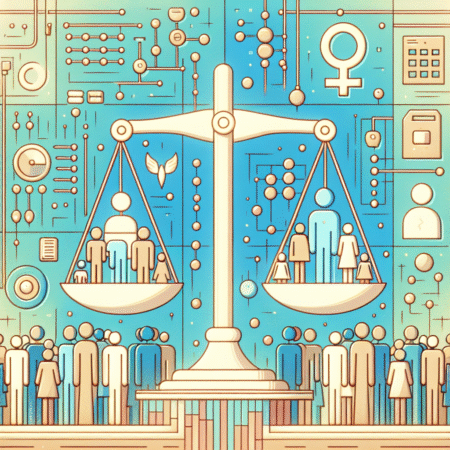The Importance of Understanding AI Fairness
Artificial Intelligence (AI) is not just a buzzword. It’s a force shaping our world. From social media feeds to job applications, AI influences daily decisions. Yet, while these algorithms offer convenience, they often come with hidden biases. “Behind the Screen: Unraveling the Secrets of AI Fairness” dives into this crucial issue, unpacking how fairness in AI affects us all.
Imagine scrolling through your social media. The posts you see are personalized, tailored to your preferences. But have you ever wondered how those preferences are shaped? AI systems learn from past behaviors, but what if those behaviors reflect biases from society? Biases seep into algorithms like a fabric stained with ink. The question arises: Is the algorithm neutral, or does it reflect societal prejudices?
What Does Fairness Mean in AI?
Fairness is a buzzword in discussions about AI. But what does it really mean? Simply put, fairness in AI refers to the absence of bias in decision-making processes. It’s about ensuring everyone gets a fair shot—regardless of race, gender, or background.
Consider facial recognition technology. Studies reveal that some AI systems perform poorly on individuals with darker skin tones. This discrepancy arises because of skewed data. If developers train facial recognition systems primarily on lighter-skinned individuals, the software will struggle to recognize others. The implications are serious. Misidentification can lead to wrongful arrests or discrimination.
Similarly, hiring algorithms can exhibit bias. Companies often implement AI to filter job applicants. However, if the training data reflects historical hiring choices, the AI may favor candidates from similar backgrounds, perpetuating inequality. The risk? Marginalized communities might be systematically overlooked, reinforcing existing disparities.
The Moral Responsibility of Developers
Who is accountable when an AI system acts unfairly? This question looms large. Developers and organizations create these systems. They need to recognize their moral responsibility. An algorithm doesn’t exist in a vacuum. It reflects the values—or the lack thereof—of its creators.
Ethical considerations should be central to AI development. Transparency offers a path forward. By clearly documenting data sources and decision-making processes, developers can allow for scrutiny. This encourages a culture of accountability. If biases arise, organizations should act to correct them promptly.
Real-world implications are profound. A biased AI can lead to societal harm, affecting job opportunities and legal outcomes. A call to action emerges: we, as users, must demand ethical practices and advocate for change.
In an age increasingly dominated by algorithms, understanding AI fairness grows ever more critical. It challenges us to rethink how technology interacts with society. Through engagement and advocacy, we can shape a future where AI serves as a bridge rather than a barrier.
This journey does not end here. Questions linger. How do we define fairness? Who gets to shape these definitions? We stand at a crossroads. The choices we make today will echo into the future. Let’s ensure they lead toward justice and equality.
Discover More Technology Insights
Dive deeper into the world of Cryptocurrency and its impact on global finance.
Stay inspired by the vast knowledge available on Wikipedia.
OPED_V1

